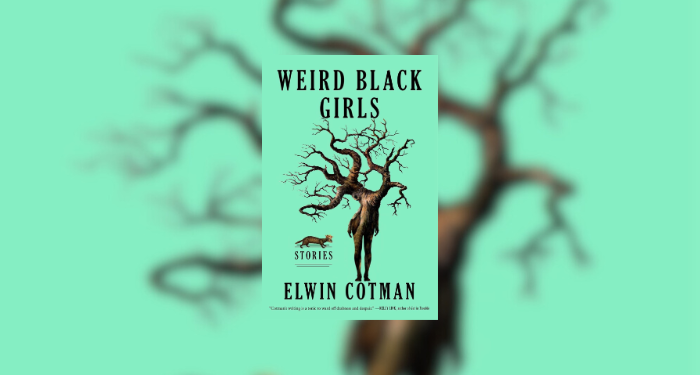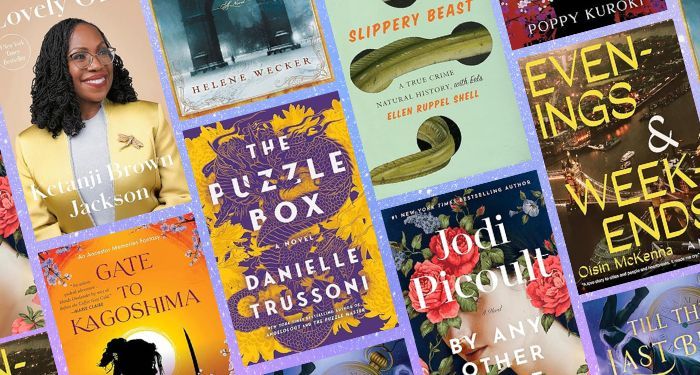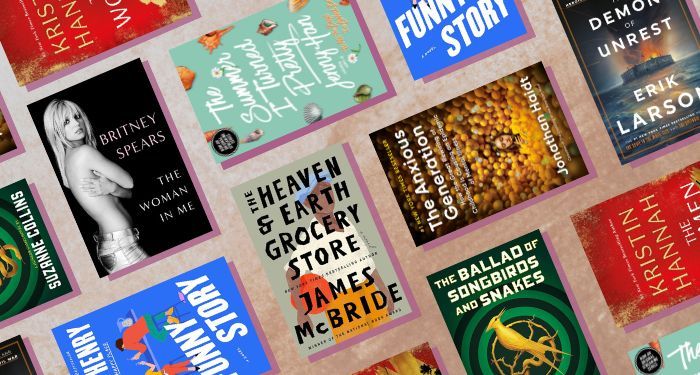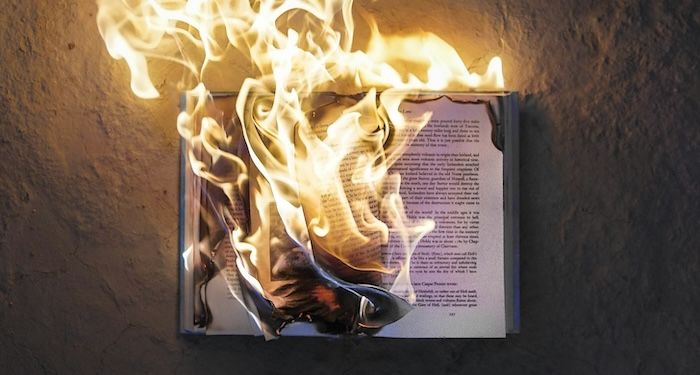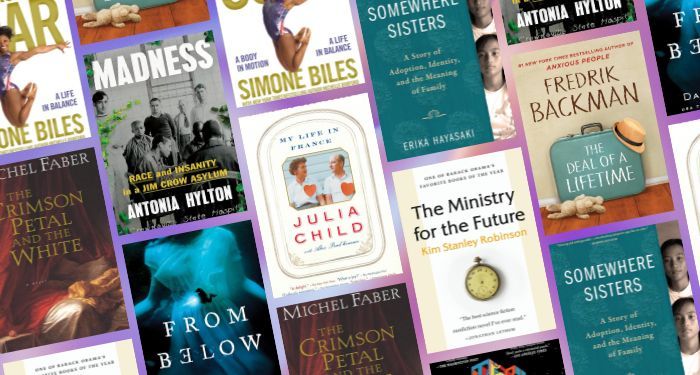Twisty-Turny Tales That Blur the Line Between Fantasy and Reality in Black Life
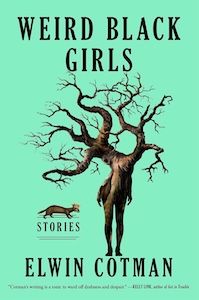

When the truth is stranger than fiction, stories that use fiction to explore the truth can get pretty weird.
In Weird Black Girls, Elwin Cotman delivers seven short stories that go long on fantasy and supernatural phenomena to delve into the very real dangers and anxieties of contemporary Black life. We’ve got a town ruled by a punishing tree, old friends catching up as chaos unfolds at a Mexican joint, a couple of narcissists messing with an activist community, a dude living through his lover’s memories, and LARPing adventure that takes a wild turn. And that’s just a few of the twisty-turny tales that blur the line between fantasy and reality! Throughout, Cotman lays down deep human truths about friendship, love, betrayal, and bitterness.
Weird Black Girls is available now wherever books are sold.
The neighborhood was named Braintree after the three colleges built into a colossal prehistoric tree uprooted during the Rupture and lodged like a splinter in the western end of town. On the T the four of us stood squeezed in a lump of humans, safe among one another. It felt great to be part of a cohort, like Matt and myself in college. I gazed out the window and down at apartments built on top of the roots. Yellow lights. Red-and-blue lights.
We disembarked into a hyperactive mass of college kids swarming the three-level station. From every direction, girls dressed provocatively declared their intentions to dance and drink. Magali extended a palm to push through the rubbernecks while you and I, holding hands, did our best to keep up. Down twisting tunnels that echoed with busker pop, my overstimulated brain conjured valiant fantasies. Some frat boy would snatch you around the waist. I would ram the punk with my shoulder and send him flying. Or the flow of kids pushing onto the train would carry you away, but I would leap atop a wooden bench to grab your hand before the flood washed you out to sea.
We rested on the escalator that carried us upward with no end in sight, like ascending the throat of God.
“This is pretty epic,” you noted.
Eight minutes later the escalator deposited us in a wide glass-walled corridor. Outside, gargantuan branches reached into the pulsing night like Cthulhu’s brown-skinned brother doing aerobics. It occurred to me the room we stood in was constructed against the tree trunk, a grand and terrifying thought. Out the left window I viewed Boston University, composed of a dozen red-brick buildings attached to the tree like cuckoo clocks, with more lecture halls built in cavities within the trunk. On Magali’s insistence we moved to the right window, where she cheerfully pointed above us. There, hanging from the underside of a branch, the steel spires of MIT resembled a dozen titanium stalactites glowing with light from a hundred tiny windows.
On our exit from the station the bat-wing doors dipped shyly into their slots. At the top of a translucent stairwell I paused because, under the steps and through the glass, there loomed several hundred feet between us and the lights below. Vertiginous, I backed toward a wall smeared in advertisements, threw my shoulders between Robert Pattinson’s and Kristen Stewart’s smolderingly empty profiles. I stared out the windows at three branches upon which the Universalist Church built its utopia of nonsectarian learning, each connected to the others by translucent walkways bridging the sky like arteries pumping blood to the gabled Georgians lined like a regiment of royal dragoons.
I spoke to you through nervous laughter. “Fear of heights still there.”
“Maybe you could wait here for us,” you suggested. Rather than soothe, your words made me want to dash my brains on the wall. There seemed no way around this challenge, so I stripped off my shirt to the tank top beneath, tied it around my eyes, and extended my hand.
“Just lead me,” I demanded with forced boldness.
You did so, down, up, through the corridors. Comforted in the dark, I regained enough spirit to make unfunny jokes. And yet there came a point, suspended between Heaven and Earth, when I realized this was the closest intimacy we’d shared in weeks, going back to before our breakup. You had set your boundaries shortly after we started having sex. “I don’t think we should do it every night. I don’t want to be a, um, loose woman, as my mom would say.” And I asked you to repeat that, hoping I might hear something different the second time. Instead, you repeated the lines word for word, and when you said “as my mom would say,” you gave my hand a zesty squeeze.
Things only worsened from there. You grew colder. Thinking back to this, I was sullen when you told me, “You can take it off.”
“And put it back on,” I heard Matt drolly amend.
Sight returned, I found us in a brutally ordinary hallway with three elevators on either side. A dozen palm-sized geodes floated in the air, glowing from within with violet light, and, giving one a curious push, I watched it drift until it bounced gently off the chrome wall. Magali buzzed us through a plexiglass door.
Our reflections shimmered over stones that called to mind garnet, topaz, and quartz but were nothing I’d seen before. Cracked open, the crystals on the walls seemed alive, mischievous with ancient power. Farther in, the cave became office space, ready-to-assemble and beige. In the print room Magali logged me onto her account. The desktop background showed a picture of her and her cohort in a mine, dressed in orange coveralls, posing with pickaxes around a boulder as tall as herself, black and marbled in veins red as aneurisms, cracked at the top, emitting toad-colored smoke.
On Yahoo I downloaded my résumé from an email I’d sent myself and printed it. Plucked the warm document from the tray to find the indentations jumbled.
“It’s fine,” I told Magali when she offered a second printing. “So long as I can read it.”
“I can’t read that,” she retorted. “Like I said, billion-dollar endowment.”
Afterward, she visited her cubicle to attend to a matter that occurred to her at the last minute, but I had no doubt was in some way relevant to mankind’s survival, and Matt, the dutiful boyfriend, helped her carry files from the meeting room. It was as if I’d turned twelve again, left alone in an after-hours jazz club while my mother, accompanied by her saxophonist boyfriend, saw to adult business in the back, while men played Spades and, feeling as if spiders were building webs over me, I passed the time reading.
Unlike me, however, you had no patience; you hurried us down a hall where the stones glowed extra bright, the smell from their emittance like burnt toast buttered in limestone. Yyou ducked inside a men’s room furbished in toilets and sinks cleaner than antique china, courtesy of what had to be Earth’s most efficient custodial staff.
Sitting on the floor next to a toilet, adopting the deadpan air of a Carrivaggio model, you fished a tinfoil ball from your bra, opened it on the seat to reveal your sizable weed stash. Rolling the joint, you told me that if we exhaled into the bowl and flushed at the same time, it would air out the smell. I doubted this, but made no objection, despite my terror. During my brief career as a smoker there had been more freak-outs than sing-alongs, more doomsday visions than philosophical tangents; on top of that, for someone like me, who’d once walked three hours through Manhattan to avoid the bus fare, drugs seemed an expensive habit. Tonight, however, I did them for free, and I did them for you.
Finished with your joint, you crumpled the tinfoil into a ball you then noted looked like a one-eyed bulldog. You named your creation Berneticott and, setting him on top of the flushometer, said he would protect us. A little while later we determined, after I told you about my last encounter in a restroom, that had I taken up the stranger’s proposal, it would have been an awkward situation, since even on his knees he was taller than me. For this scenario, you decided, I would have to either sit on the paper towel dispenser, or, if we stayed in the stall, insist on the giant hairy Bostonian doing a handstand in order to service me. But forget about me. What about you? What about these older people who loved you enough to gift you forty acres and a mule? To which you mused a mule would be pretty useless nowadays, unless you taught it a skill, like embroidery, or trained it to compete in spelling bee. And for a while you spun the tale of how you should move to Hollywood, find another elder, like Snoop Dogg, and convince him to give you a dinosaur, but a kind one, like a velociraptor.
From there we raced around the reception desk in office chairs. Illuminated in geode light, you beamed a melty smile to the ceiling. I listened to you muse about how, if black folks failed to trim their edges, those edges would keep growing until everybody’s face became a mask made of curls.
For the first time, it felt like I was sharing my unique happiness with another person: since childhood I’d been keen to climb, crawl, stride, and creep into places where I’m unwelcome. Places where I’m too early, too late, unknown, uninvited, unregistered, banned, barred, mistrusted, or despised. On occasions when I’d find myself stirring dust in an abandoned building, or scoffing hors d’oeuvres at someone’s thesis presentation, or absorbing eulogies at a stranger’s funeral, artificial notions of stability curtsied before Chance and Risk.
This I was pondering when a shadow stretched toward us from the adjacent hallway. A guard, I thought, followed by the image of our black bodies bullet-riddled. No time to waste, I hauled you from the chair by your wrist. Hurried you through a cubicle labyrinth that ended atop of a titanium stair. Scooped you in my arms and descended two flights to a waiting area furnished with pastel vinyl sofas around a lavender stone twice as tall as a man. Squatting behind a second reception desk, cautious as turtles, we listened for danger, fighting to appear calm for each other, even as our staggered breaths told the story.
“That was security,” I whispered. “They catch us, they’ll kill us.”
You nodded understanding. Inwardly, I rejoiced to find us on the same page, even if it took imminent death and marijuana to put us there. Like the crystals, you’d cracked open to reveal the luminescence beneath your beauty. There was no one on earth I would rather die with. “Find us weapons,” I ordered.
Off the desk you passed me a Rolodex, then armed yourself with a letter opener. Feeling I might burst from affection, I said, “Tell me your dreams.”
“My dreams?” You sounded confused.
“When they come, I’ll shield you. But if you die and I live, I want to honor your dream.”
With lucidity that bordered on robotic, you told me, “I’m thinking of becoming a food healer. I’d like to create kitchens where black people can cook healthy meals together. And they don’t have to be family. Just people in the community. We have generational hunger that affects us physically. Sharing a kitchen with strangers and working together to make something good can create a healing space. And then everybody can eat together. And it’ll be great.”
Generational trauma I’d heard of, but hunger? Weird. Like, California weird. Nor did I understand what made you an expert in “food healing” studying political science at Chatham. In any event, knowing your dream bound me to you. I promised, “I will absolutely start the project if you die.”
“Shush! I hear them coming.”
Rather than wait for the attack, I jumped to my feet, Rolodex held high to bludgeon our fascist assailant with the fervor of a Zulu warrior. At the foot of the steps Matt stood holding a stack of prints, in no way surprised at the state he’d found me in; befuddled Magali; and, between them, a paunchy dark man in thick spectacles.
“I am sorry if I scared you,” he said. “Please forgive me.”
“This is my colleague Rajit,” said Magali, and introduced us with our names.
Matt looked bemused. “Maybe you shouldn’t smoke pot.”
Awareness of how stupid I looked weighed on my chest like one of those X-ray aprons at the dentist. Nevertheless, you rested your head on my shoulder.
Excerpted from WEIRD BLACK GIRLS by Elwin Cotman. Copyright © 2024 by Elwin Cotman. Reprinted with permission from Scribner, a Division of Simon & Schuster, Inc

